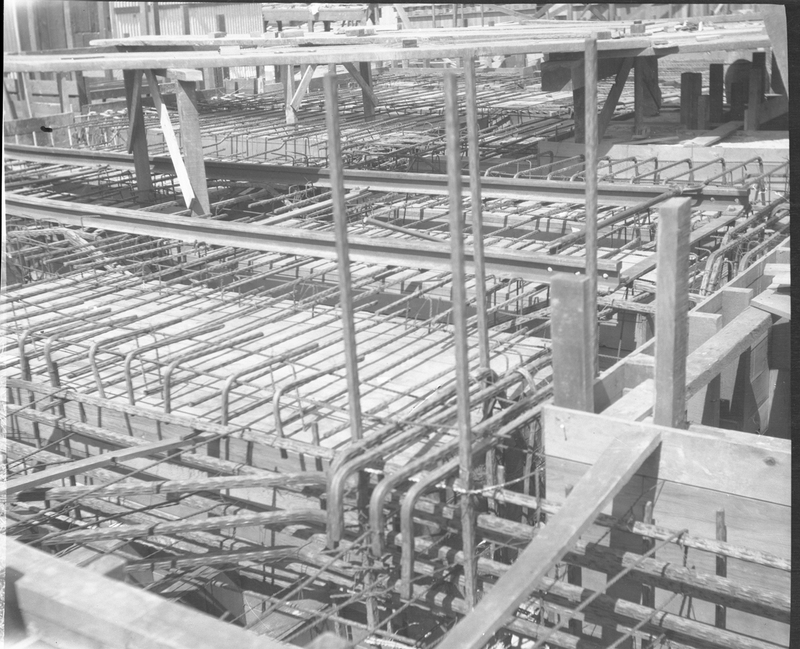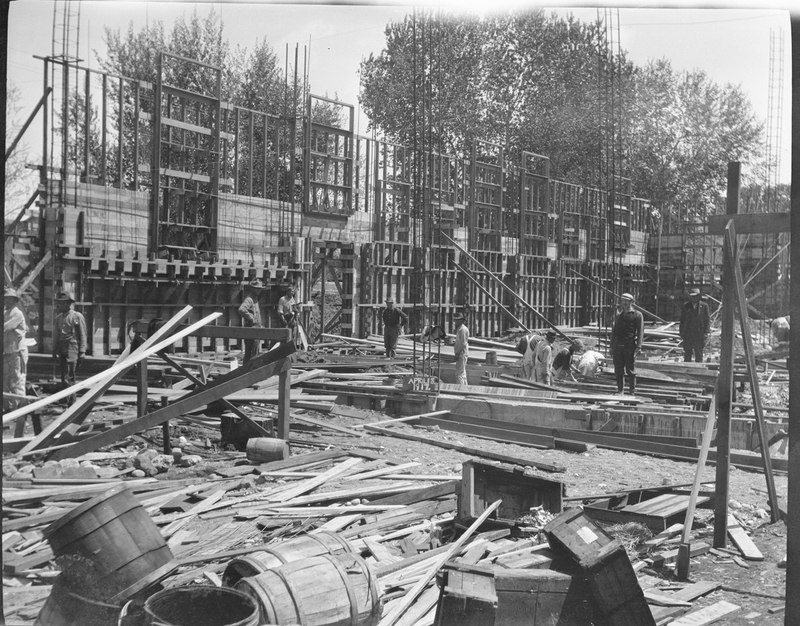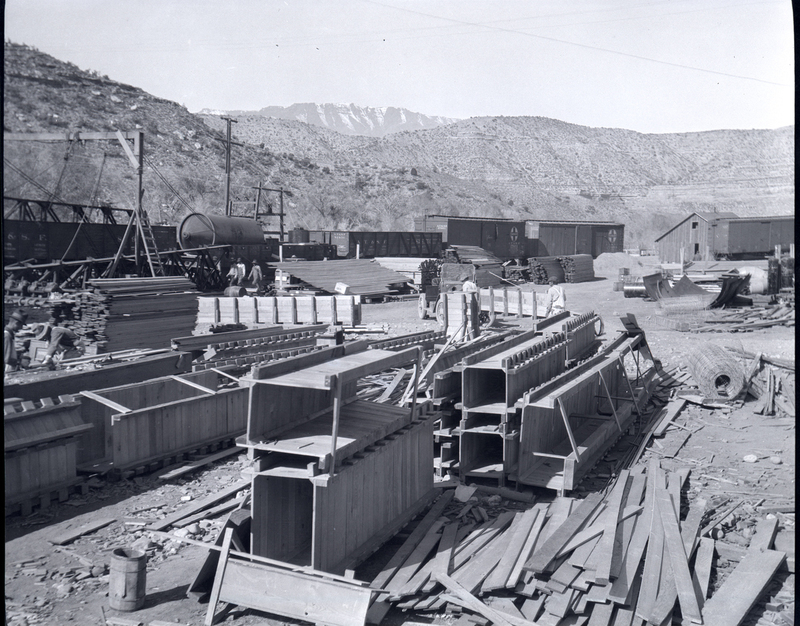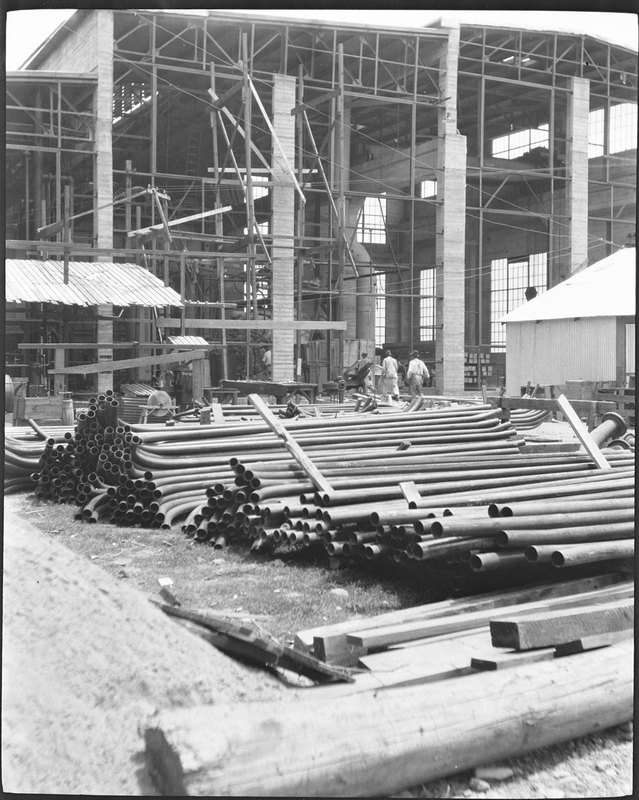An agreement was made between APCO and Clark to provide the United Verde Copper Company with more power. On the Verde River just north of Clarkdale, APCO became The Arizona Power Company (TAPCO) and the United Verde Copper Company was its biggest customer. Construction of the new TAPCO auxiliary steam powerplant began in February 1917 and was completed and online in September of 1917.
The construction of the plant was strategic and included rail service by building it only a half mile from the Atchison, Topeka and Santa Fe railroad. By adding a standard gauge spur and switch that ended in the south end of TAPCO’s turbine room, the rail was connected to the plant. There was a concrete trough that had 4 openings that allowed for 4 railroad tanks of oil to be simultaneously unloaded at a time. The turbine room was 2,640 square feet in size and also housed a 30 ton traveling bridge crane.
TAPCO was constructed out of steel reinforced concrete and included a 7,700 square foot boiler house on the north end with a laboratory. Beneath the turbine was a basement that housed the Wheeler Condenser. This condenser consisted of 14 miles of copper tubes that condensed the steam back to water. There were two oil storage tanks at TAPCO, one underground that held enough oil for 24 hours of operation and a second that held a two week supply of oil, 315,000 gallons.



